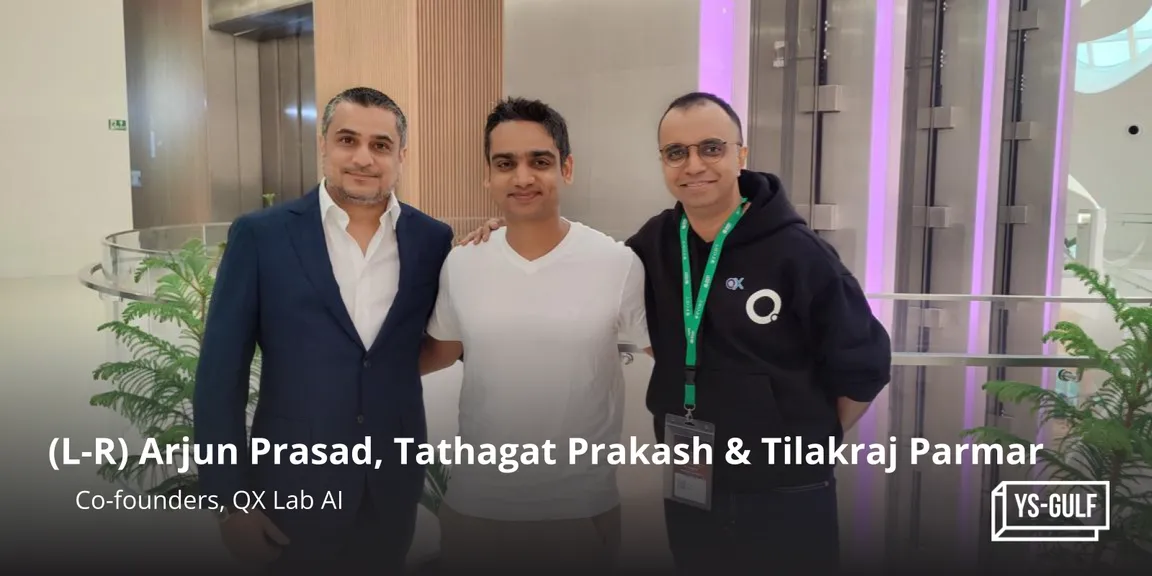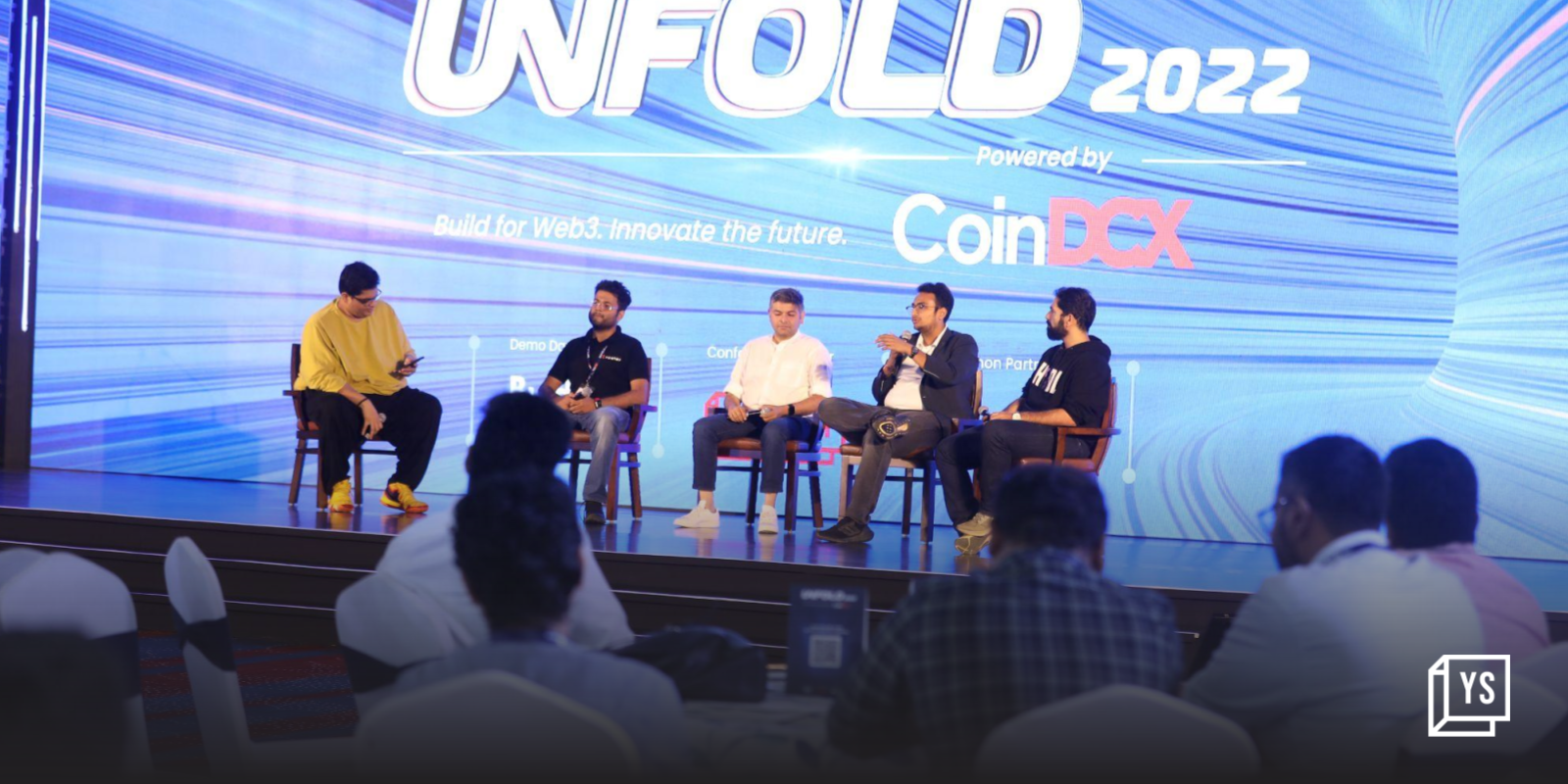How QX Lab AI is empowering local communities overcome language barriers
Founded in 2018, QX Lab aims to create transformative generative AI solutions that cater to diverse global needs. It currently has over 14 million users.
Tilakraj Parmar, Arjun Prasad, and Tathagat Prakash—three passionate tech enthusiasts—wanted to address real-world challenges and empower communities through inclusive solutions.
They believed that AI should not only be powerful, but also accessible to people from all walks of life, contributing to the betterment of society as a whole.
With an aim to bridge the gap for non-English speaking audiences, the trio co-founded in 2018.
The UAE-based company aims to create transformative generative AI solutions tailored to diverse global needs.
“Our mission is to empower local communities by democratising technology and overcoming language barriers. We prioritise developing a product that supports regional languages, making technology accessible to non-English speakers,” Parmar, Co-founder and Chief Executive Officer, QX Lab AI, tells YS Gulf.
The startup, with over 14 million users, currently has over 80 employees.
Breaking language barriers
After eight years of research and development, QX Lab AI launched its first product, Ask QX, in February this year. It is a hybrid generative AI platform designed to make AI more accessible to users.
Ask QX utilises neurologically trained algorithms in over 100 languages, including 12 Indian languages, as well as Arabic, French, Spanish, Japanese, German, Italian, Korean, Portuguese, Russian, and Sinhala.
Its hybrid model uses 30% Large Language Model (LLM) and 70% Neural Network Architecture to enhance language comprehension and user interaction.
“Scarcity of quality datasets, resource constraints for less common languages, orthographic disambiguation, and speech recognition challenges added to the complexity. Additionally, integrating cultural context and ensuring efficient algorithms in various technical environments were crucial yet daunting tasks,” Parmar adds.
“Overcoming these challenges required a multifaceted approach. It involved leveraging linguistic expertise, advanced machine learning techniques, and extensive data collection and analysis. Regular updates to accommodate language changes were necessary, highlighting the need for ongoing refinement,” he says.
The neural architecture of Ask QX provides scalability, reduces the cost of computing power, and enhances the security of the platform to protect against potential data breaches.
“The neural architecture of our platform provides scalability for the product, resulting in reduced computational expenses and enhanced platform security, safeguarding against potential data breaches,” Parmar explains.
The founder explains that the decentralised architecture of Ask QX ensures seamless scalability and resilience, allowing for the addition of new nodes without significant restructuring.
“This design also ensures the system remains functional in case of node failures. By distributing nodes geographically, Ask QX processes data closer to its source, reducing latency and complying with local data regulations, eliminating the need for centralised processing,” he added.
Business model
Ask QX uses advanced natural language processing (NLP) techniques to understand and interpret user queries, maintains a comprehensive knowledge base, implements machine learning algorithms for continuous performance improvement, and understands the context of user queries for personalised responses.
The platform offers three subscription models—a freemium model, which provides basic services for free; and premium subscriptions that offer advanced features and specialised functionalities.
It has tiered pricing plans to ensure affordability and accessibility for users from diverse backgrounds.
Currently, the platform is free to use. “We aim to earn money from our premium model services, which are going to be priced at $1 for B2C users to make our platform accessible to everyone,” Parmar says.
The app is now available on Google Play Store with 10,000 downloads, and the iOS version will be released soon.
“Our platform is tailored to meet the needs of individuals seeking personal upskilling as well as businesses aiming to enhance their capabilities through Generative AI technology,” he notes.
Currently, the platform is focused on India, GCC, the MENA region, and Sri Lanka.
Sustainable mobility: Eco Way wants to spearhead green deliveries in Dubai with e-bikes
Ask QX has partnered with Yotta Infrastructure Solutions to ensure platform growth and stability, leveraging robust infrastructure and resources for enhanced scalability, reliability, and security.
The startup competes with players such as ’s ChatGPT and Gemini.
Parmar says, “Our platform prioritises linguistic diversity, cultural sensitivity, and multilingual proficiency, delivering respectful responses across multiple languages. Our localised data handling and global compliance strategy align with international data privacy laws, catering to privacy-conscious users.”
Way ahead
According to Fortune Business Insight, the global artificial intelligence market was valued at $428.00 billion in 2022 and is expected to reach $2,025.12 billion by 2030.
India’s artificial intelligence market is expected to reach $17 billion by 2027, with a CAGR of 25-35% between 2024 and 2027, according to a joint report by Nasscom and BCG.
The company plans to expand its product category to incorporate features and introduce text and audio formats, text-to-image, text-to-code, and text-to-video functionalities in the first quarter of 2024.
“The additional functionalities will cater to various business cohorts, including B2C, B2B, and B2I, with applications in sectors like healthcare, education, and legal services,” says Parmar.
Recently, the Dubai Commodity Centre (DMCC), Dubai's commodity trading and business authority, teamed up with QX Lab AI to launch the DMCC AI Centre later this year.
“The name QX Lab AI embodies commitment to pioneering AI innovation where 'Q' reflects our engagement with quantum computing for enhanced AI capabilities, while 'X' symbolises exploration, experimentation, and extension of human potential through AI,” Parmar says.
For any press related queries or to share your press releases, write to us at
[email protected].
Edited by Megha Reddy





